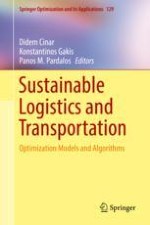Focused on the logistics and transportation operations within a supply chain, this book brings together the latest models, algorithms, and optimization possibilities. Logistics and transportation problems are examined within a sustainability perspective to offer a comprehensive assessment of environmental, social, ethical, and economic performance measures. Featured models, techniques, and algorithms may be used to construct policies on alternative transportation modes and technologies, green logistics, and incentives by the incorporation of environmental, economic, and social measures.
Researchers, professionals, and graduate students in urban regional planning, logistics, transport systems, optimization, supply chain management, business administration, information science, mathematics, and industrial and systems engineering will find the real life and interdisciplinary issues presented in this book informative and useful.
